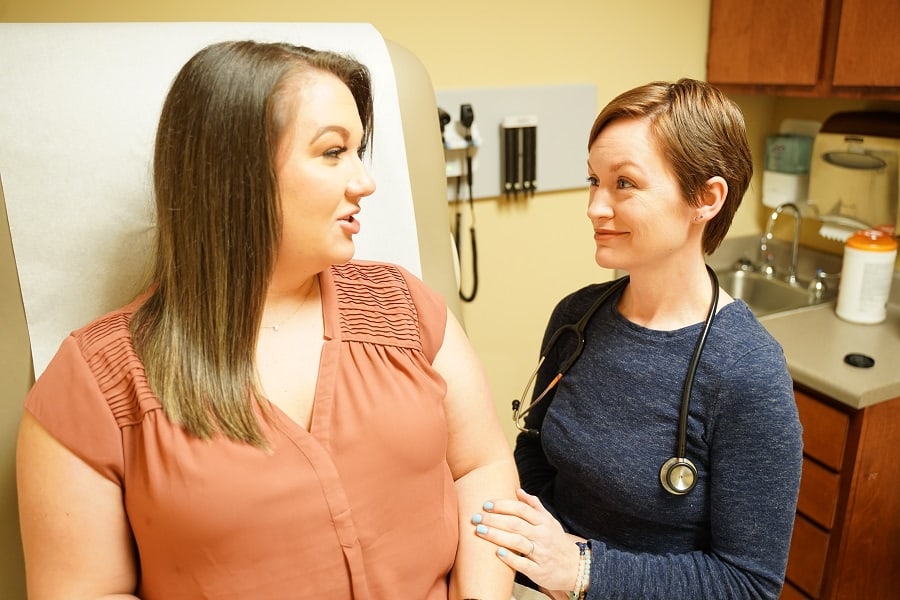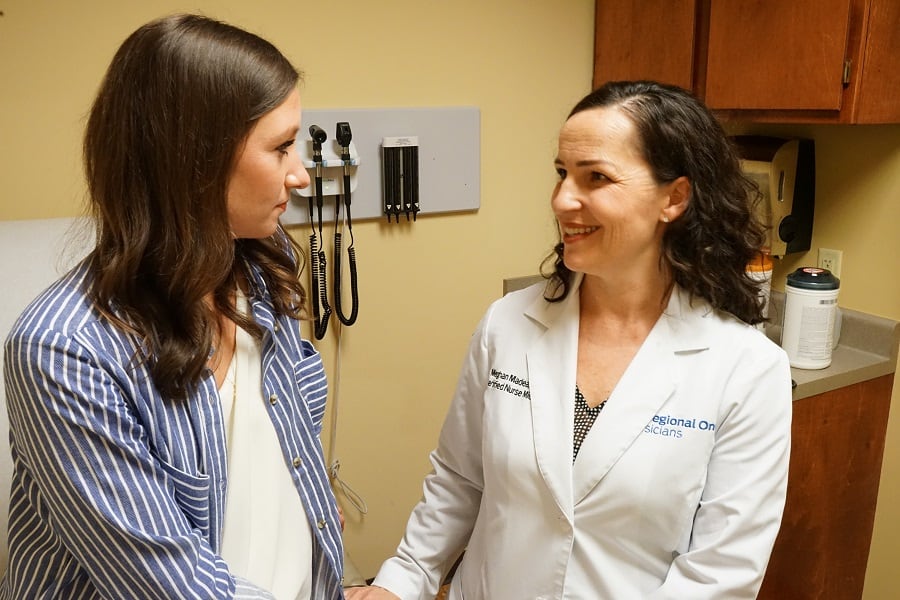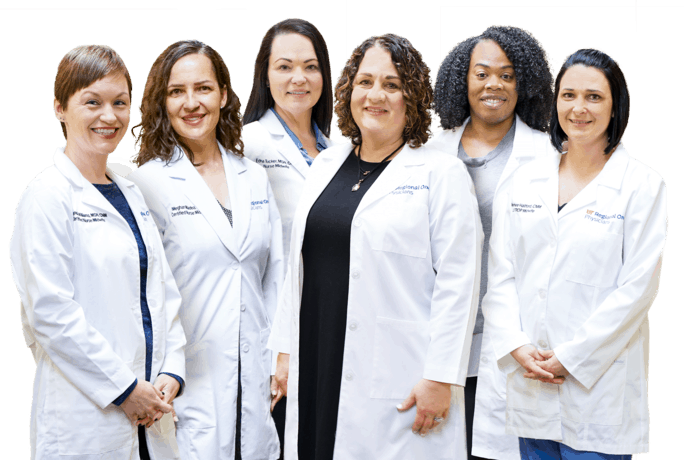Regional One Health’s team of certified nurse midwives focus on providing evidence-based care with a personal touch.
For women who are expecting a baby, it’s a great way to receive exceptional prenatal care and have a provider’s one-on-one support in achieving their ideal birth plan.
Regional One Health is the only hospital in Memphis where a woman can deliver with the support of a nurse midwife. That means women enjoy the safety of a hospital birth and the empowering support of a nurse midwife.
Pregnancy and childbirth are special, momentous occasions in women’s lives – not conditions that need to be cured. This philosophy sets midwifery apart when it comes to caring for patients.
“We don’t see pregnancy and labor and delivery as an illness – we see it as a normal process,” said Meghan Madea, a certified nurse midwife at Regional One Health. “We really want the woman to have the experience she chooses to have – throughout her pregnancy and her labor.”
How do they do it?
Our midwifery team – Maria Hallford, Davin Johnson, Breia Loft, Meghan Madea, Edna Tucker and Amanda Williams – answered questions about how they provide evidence-based care with a human touch.
How often will I see my nurse midwife?

“The nurse midwife is at your bedside – we are dedicated to the patient giving birth,” Amanda Williams, CNM says. “We’re physically present the whole time. It’s low-intervention, high-touch care.”
Our nurse midwives follow the same schedule as an OB/GYN for a routine pregnancy:
- Monthly for the first six months
- Twice a month from month six to eight
- Weekly from month eight until birth
“Obviously, our door is always open if you have any concerns,” Madea said. “We’re very lenient about walk-ins, and someone is always on call so we’re available after hours and on weekends.”
What will happen at my appointments?
Again, midwifery follows the standards of obstetric care when it comes to tests and lab work – regular urine tests, fetal heartrate monitoring, gestational diabetes screening, ultrasounds, etc.
Nurse midwives typically have more time for each appointment, Williams said. They use it to get to know their patient and provide education and support.
Williams said she encourages patients to talk about their birth plan – both goals and concerns – so she can help them achieve it. Madea educates patients not only on pregnancy, but what happens after the baby is born – for example, she likes to introduce topics like breastfeeding and birth control early on when a patient isn’t overwhelmed with a newborn.
What if there’s a complication?

“We don’t see pregnancy and labor and delivery as an illness – we see it as a normal process,” said Meghan Madea, CNM. “We really want the woman to have the experience she chooses to have – throughout her pregnancy and her labor.”
Often, our midwifery practice can manage pregnancy-related complications. However, for conditions outside the scope of their practice, they work closely with Regional One Health’s OB/GYNs – including high-risk and maternal fetal medicine experts.
“They are literally sitting right next to us, and they can help – but at the same time, you still have your midwife helping you be heard and be engaged,” Madea said.
They can also guide patients who need to see other specialists in the health care system.
Will I get to know everyone in your practice?
Absolutely, Williams said – that ensures a woman is comfortable with all of the nurse midwives by the time she delivers. “We don’t want someone new rolling up to your bedside when you’re at your most vulnerable,” she said. “Think of us as your pregnancy squad!”
She said the nurse midwives share a philosophy of giving women a voice and encouraging them to express their wishes. From there, they aim to support the patient in achieving her goals.
What will my nurse midwife offer during labor and delivery?
Regional One Health is the only hospital in Memphis where women can give birth with a certified nurse midwife. It’s the best of both worlds – supportive care and all the technology and emergency medicine resources of a world-class hospital.

Regional One Health’s Certified Nurse Midwives see patients for pregnancy care and regular well woman care at our new Kirby Primary Care location and at Hollywood Primary Care.
“The nurse midwife is at your bedside – we are dedicated to the patient giving birth,” Williams said. “We’re physically present the whole time. It’s low-intervention, high-touch care.”
Most importantly, it’s care focused on the patient’s wishes.
Nurse midwives can coach women through delivery without medication or prescribe epidurals and other pain relief. As long as the labor is progressing safely, the nurse midwives strive to respect each woman’s wishes for the level of intervention she wants.
“We encourage physiological birth, where the woman finds the position that feels best for her. You can be lying in bed, but you don’t have to be. You can stand, you can be on your hands and knees, you can be on a birthing ball, you can dance,” Madea said.
They don’t do water births, but moms can shower or be in the tub during labor.
Patients can also have support from loved ones. Madea said she’s helped with births with several family members in the room, and she has led many dads to actively assist with the delivery.
“It’s not where you are, it’s who you’re with that matters,” she said.
How do I see a nurse midwife?
Our team sees patients at Hollywood Primary Care and Kirby Primary Care both for pregnancy and regular well-woman care. “We look forward to getting more women engaged in their own care,” Williams said. “It’s a great option for women in Memphis!”